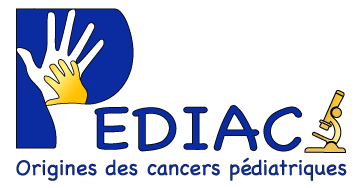Over 110 attendees on
“Pesticides: exposures, metabolism and toxicology” webinar
The PEDIAC consortium organized on Tuesday, May 31, 2022 a webinar around the theme “Pesticides: exposure, metabolism and toxicology” for scientists. This first scientific webinar was a success with a good discussion between experts and PEDIAC members and with more than 110 attendees!
The first part of the program was dedicated to the presentation of the following topics by the speakers:
- “Exposure of children and pregnant mothers in the French population” presented by Cécile Chevrier, who is DR Inserm, epidemiologist at IRSET and co-leader of the Elixir team (Epidemiology and exposure science in health-environment) at the University of Rennes.
- “Pesticide exposure and toxicokinetic profile of pyrethroids and organophosphates during pregnancy” presented by Karen Chardon, who is a professor at the University of Picardie Jules Verne. Her challenge in the PériTox unit (Perinatality and Toxic Risks) is to study the impact of perinatal exposure to environmental factors on the health of the newborn and child, and in particular the physiological functions involved in maintaining the energy balance necessary for survival and development.
- “Distribution of pyrethroids in maternal and fetal tissues” presented by Stéphane Personne, who is a research associate in the PériTox Unit.
- “Metabolism and distribution of the metabolites in the organism” presented by Xavier Coumoul, professor of biochemistry and toxicology at the Paris City Université who has worked for years on the molecular effects of environmental pollutants using several models and clinical studies.
- “Reproductive and developmental toxicity, carcinogenicity, interactions with the genome” presented by Robert Barouki, biochemist and molecular biologist at the Paris City Université who focuses his research on the impact of environmental contaminants on human health and the mechanisms of action involved in these effects.
- “Pesticide-Induced epigenetic transgenerational inheritance of pathology” presented by Michael Skinner, who is a professor of environmental epigenetics/reproductive at Washington State University. He studies the transgenerational epigenetic inheritance of disease and evolution induced by the environment. Dr. Skinner also conducts his research on the molecular and cellular control of testis and ovary development and biology.
In the second part, there were lively discussions to better understand the implications for models and epidemiological analyses.
The workshop concluded on an optimistic note to pursue collaboration to better understand the role of pesticides in the development of childhood cancers.
Thank you to the speakers and researchers for their work! Stay tuned for future events!
